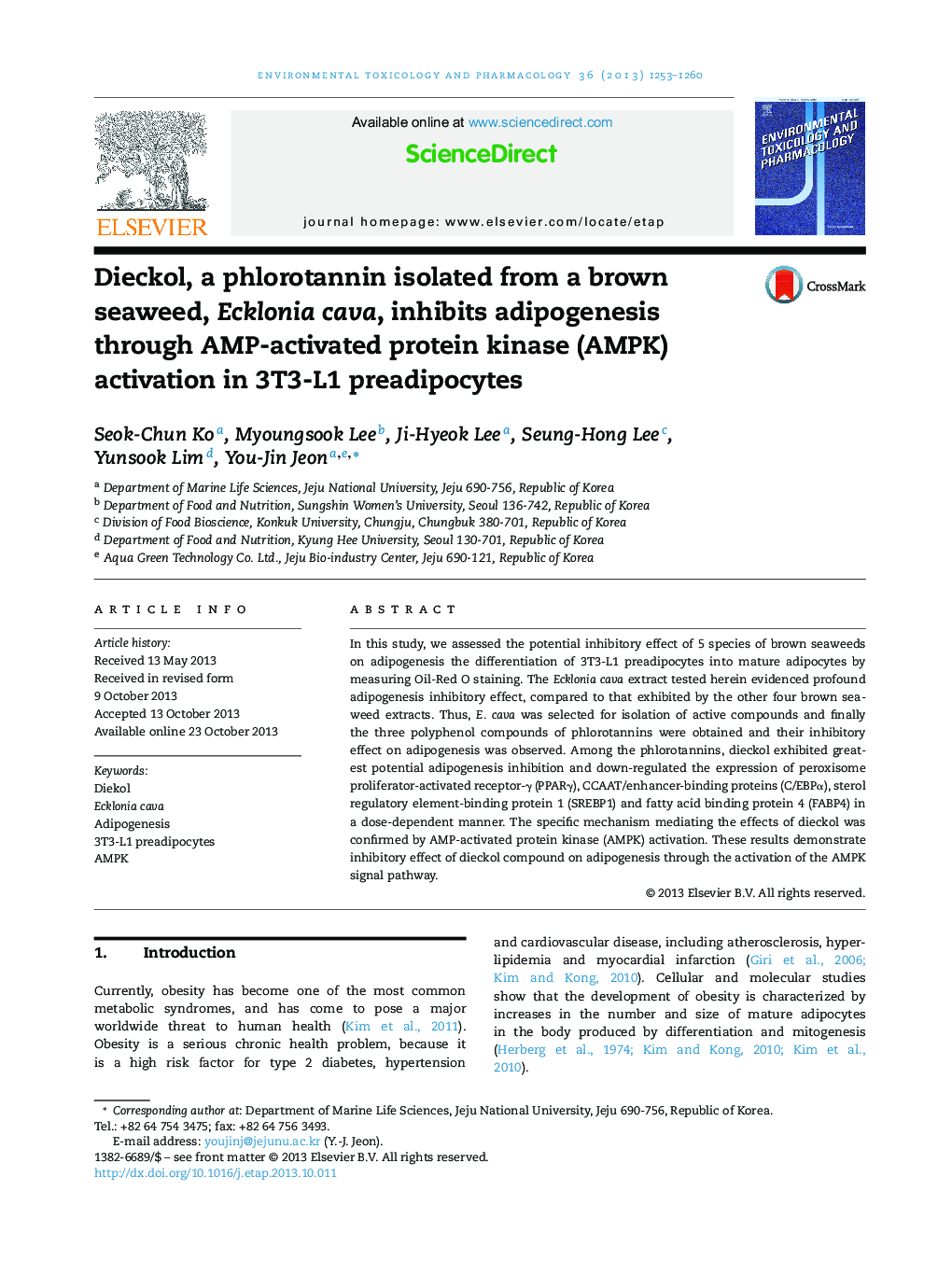| Article ID | Journal | Published Year | Pages | File Type |
|---|---|---|---|---|
| 2583120 | Environmental Toxicology and Pharmacology | 2013 | 8 Pages |
•The Ecklonia cava extract tested herein evidenced profound adipogenesis inhibition.•The three polyphenol compounds of phlorotannins were isolated from E. cava.•Dieckol exhibited greatest potential adipogenesis inhibition.•Dieckol significantly reduced the expression of adipogenic-specific genes and proteins.•Dieckol inhibits adipogenesis by activating the AMPK pathway.
In this study, we assessed the potential inhibitory effect of 5 species of brown seaweeds on adipogenesis the differentiation of 3T3-L1 preadipocytes into mature adipocytes by measuring Oil-Red O staining. The Ecklonia cava extract tested herein evidenced profound adipogenesis inhibitory effect, compared to that exhibited by the other four brown seaweed extracts. Thus, E. cava was selected for isolation of active compounds and finally the three polyphenol compounds of phlorotannins were obtained and their inhibitory effect on adipogenesis was observed. Among the phlorotannins, dieckol exhibited greatest potential adipogenesis inhibition and down-regulated the expression of peroxisome proliferator-activated receptor-γ (PPARγ), CCAAT/enhancer-binding proteins (C/EBPα), sterol regulatory element-binding protein 1 (SREBP1) and fatty acid binding protein 4 (FABP4) in a dose-dependent manner. The specific mechanism mediating the effects of dieckol was confirmed by AMP-activated protein kinase (AMPK) activation. These results demonstrate inhibitory effect of dieckol compound on adipogenesis through the activation of the AMPK signal pathway.
